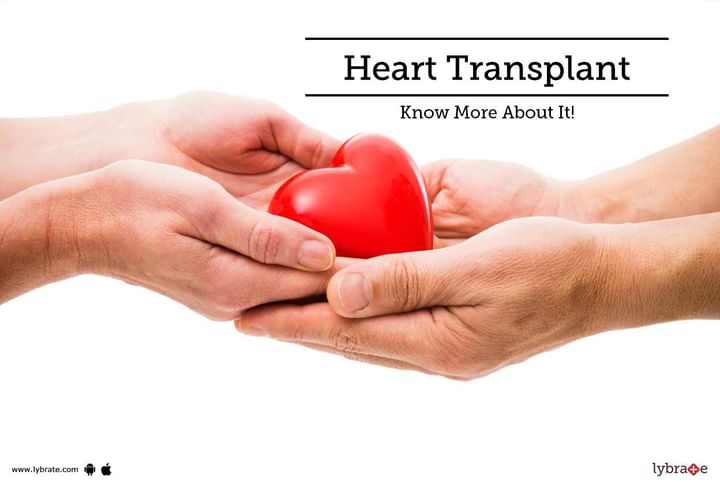Heart Transplant - Know More About It!
There are many people worldwide who suffer from heart problems (irrespective of their age and sex). While in most cases, the condition improves with proper treatment and medications, in few, the condition is beyond treatment. A heart transplant comes as a saviour for such people. It gives them a new lease of life. The transplant involves replacing a heart that has stopped functioning normally (damaged or may be diseased) with a healthy heart (from the donor).
Over the years, heart transplant has undergone a sea of change. With the advancement of science and technology, the success rate in a heart transplant has seen an exponential rise.
People who need a heart transplant:
A heart transplant may be essential in the following cases.
- A congenital heart disorder (a person born with a heart problem).
- Defective or diseased heart valves.
- Amyloidosis (a condition where amyloid fibrils get deposed in the tissues and organs of the body intracellularly or extracellularly).
- Problems in the coronary artery.
- Cardiomyopathy (A condition where the muscles of the heart become weak, thereby affecting the normal functioning of the heart).
- A heart transplant that failed previously.
- Ventricular Arrhythmias (a condition that originates in the ventricles, in ventricular arrhythmias, the heart rhythms are abnormally rapid).
However, under the following circumstances, a heart transplant may not be a wise idea
- People with infections or chronic lung or kidney disorders.
- A case of cancer in the past.
- Age may be a deciding factor. The recovery from a heart transplant may not be 100% in an aged person.
The heart transplant procedure:
The first step in heart transplant is the availability of a suitable donor. In this case, a donor is a person whose brain is dead but the other organs, including the heart, is healthy and functioning properly. A surgeon performs three operations in a heart transplant.
- The first operation is essentially the removal of the healthy heart from the donor body. The heart is kept in a cool place, preferably ice (to keep the heart alive and in good condition until the heart transplant takes place).
- In the second operation, the recipient's damaged or diseased heart is operated out. The situation may, however, be complicated if the patient had heart surgery in the past.
- The third and the final surgery involves implanting the donor heart into the recipient body (the recipient's upper heart chambers and the atrial back wall are however not removed).
- Once the implantation takes place (without any complications), the surgeons sew the heart into place.
- The blood vessels are then connected back to the heart and the lungs. The heart starts beating again once it is warmed up.
- To enable the patient to receive the nutrients and oxygen (during the heart transplant), the patient is put on a heart-lung machine.
- If no complications develop after the transplant, the patient is discharged within a fortnight.
In some unfortunate cases, there may be organ rejection. The condition arises when the recipient's immune cells see the transplanted heart as non-self (foreign agents). If left unattended, it may damage the heart. Immunosuppressant drugs can help avert rejection. However, it is important to monitor the patient closely for any infections that may arise to the administration of the immunosuppressants.



+1.svg)
